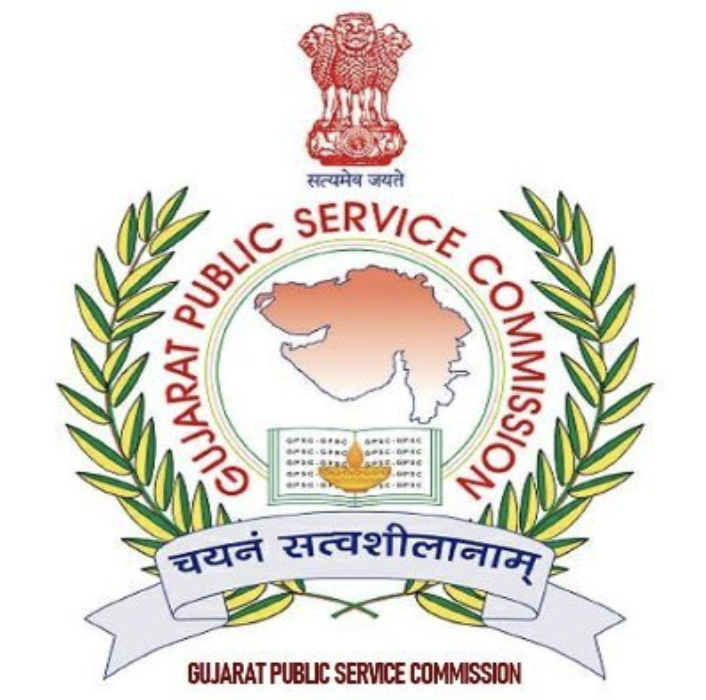
GPSC DYSO 2025: 102 Vacancies
Upcoming
Registration Date
Salary
- ₹40,800 per month
Vacancies
- 127
Eligibility
- Any Bachelor's Degree
Exam Date
- 2025-07-08T18:30:00.000Z
Registration Link
Calendar Link
Latest Updates
Comprehensive Guide to GPSC DYSO Recruitment 2025
The Gujarat Public Service Commission (GPSC) has announced the GPSC DYSO 2025 recruitment, offering a significant opportunity for aspirants aiming to join the state's administrative services. This guide provides an in-depth look into the GPSC DYSO recruitment process, eligibility criteria, exam pattern, syllabus, and preparation strategies to help candidates navigate the selection process for the GPSC DYSO exam effectively.
Overview of GPSC DYSO Recruitment
The GPSC DYSO 2025 recruitment aims to fill 102 vacancies for the positions of Deputy Section Officer (DYSO) and Deputy Mamlatdar. This Gujarat DYSO vacancy is pivotal in the administrative framework of Gujarat, involving responsibilities such as coordinating with various government and private organizations and maintaining multiple records. Successful candidates will be appointed to a GPSC DYSO post.
Key Details:
Organization: Gujarat Public Service Commission (GPSC)
Post Name: Deputy Section Officer (GPSC DYSO) and Deputy Mamlatdar
Total Vacancies: 102
Application Period: June 25, 2025, to July 9, 2025
Job Location: Gujarat
Official Website:gpsc.gujarat.gov.in
Eligibility Criteria
Before applying for the GPSC DYSO 2025 positions, candidates must ensure they meet the following GPSC DYSO eligibility requirements:
Educational Qualification:
A Bachelor's degree from a recognized university.
Basic knowledge of computer applications as prescribed for the GPSC Deputy Section Officer post in the Gujarat Civil Services Classification and Recruitment (General) Rules 1967.
Proficiency in Gujarati or Hindi or both.
Age Limit:
Minimum Age: 20 years
Maximum Age: 35 years (as of July 9, 2025)
Age relaxation is applicable for reserved categories as per government norms.
Application Process
Interested candidates can apply online for the GPSC DYSO exam through the GPSC's official website. The application process involves:
1.
Visiting the official portal: gpsc-ojas.gujarat.gov.in
2.
Registering and filling out the application form with accurate personal and educational details.
3.
Uploading necessary documents, including a recent photograph and signature.
4.
Paying the application fee (if applicable) and submitting the form.
It's crucial to review all entered information before submission to avoid discrepancies.
Selection Process
The selection process for GPSC DYSO 2025 comprises two main stages:
1. Preliminary Examination:
Type: Objective (Multiple Choice Questions)
Subjects: General Studies
Total Marks: 200
Duration: 2 hours
Negative Marking: 0.33 marks deducted for each incorrect answer
2. Mains Examination:
Type: Descriptive
Papers: Four papers, each of 100 marks
Subjects:
◦
Gujarati Language
◦
English Language
◦
General Studies I
◦
General Studies II
Duration: 3 hours per paper
Candidates who qualify in the Mains Examination will be called for document verification.
Exam Syllabus
Understanding the GPSC DYSO syllabus is crucial for effective preparation for the GPSC DYSO 2025 exam. Below is a breakdown of the topics covered in both the Preliminary and Mains examinations:
Preliminary Exam Syllabus:
History: Ancient, Medieval, and Modern India; Freedom Struggle; Cultural Heritage of Gujarat
Geography: Physical, Social, and Economic Geography of India and Gujarat
General Science: Physics, Chemistry, Life Sciences, Environmental Science
Economy: Indian Economy, Planning, Public Policy, Government Schemes
Current Affairs: Events of regional, national, and international importance
Mains Exam Syllabus:
Gujarati Language:
Essay Writing
Letter Writing
Report Writing
Translation
Grammar
English Language:
Essay Writing
Letter Writing
Report Writing
Translation
Grammar
General Studies I:
History of India
Cultural Heritage
Geography
Science and Technology
Current Events
General Studies II:
Indian Polity and Constitution
Public Administration and Governance
Ethics in Public Service
Indian Economy and Planning
Current Events
Preparation Tips
To excel in the GPSC DYSO 2025 exams, consider the following strategies for your GPSC DYSO preparation:
Understand the Syllabus: Familiarize yourself with the detailed syllabus to focus your studies effectively.
Create a Study Plan: Allocate specific time slots for each subject, ensuring comprehensive coverage.
Refer to Standard Books: Utilize recommended textbooks and reference materials for in-depth understanding.
Practice Previous Year Papers: Solving past GPSC DYSO papers helps in understanding the exam pattern and time management.
Stay Updated: Regularly follow current affairs through newspapers, journals, and reliable online sources.
Revise Regularly: Periodic revision is essential to retain information and identify weak areas.
Important Dates
Application Start Date: June 25, 2025
Application End Date: July 9, 2025
Preliminary Exam Date: September 7, 2025
Mains Exam Date: February 2026 (Tentative)
For the most accurate and updated information regarding the GPSC DYSO 2025 exam, candidates are advised to regularly visit the official GPSC website.
The GPSC DYSO 2025 recruitment presents a promising career opportunity within Gujarat's administrative services. By understanding the eligibility criteria, exam pattern, and syllabus, and by adopting a structured preparation approach, candidates can enhance their chances of success in the GPSC DYSO exam. Diligence, consistent effort, and strategic planning are key to securing a position as a Deputy Section Officer or Deputy Mamlatdar in the Gujarat Public Service Commission.
FAQs
What positions are available under the GPSC DYSO 2025 recruitment?
How many total vacancies are there for the GPSC DYSO 2025 recruitment?
What is the minimum educational qualification required to apply for GPSC DYSO 2025?
What is the age requirement for GPSC DYSO 2025 eligibility?
When can candidates apply for the GPSC DYSO 2025 recruitment?
What are the different stages of the selection process for GPSC DYSO 2025?
What subjects are covered in the GPSC DYSO Preliminary Examination?
Is there negative marking in the GPSC DYSO Preliminary Exam?
What subjects are included in the Mains Examination of GPSC DYSO 2025?
When is the GPSC DYSO 2025 Preliminary Exam scheduled?
Where can candidates apply for the GPSC DYSO exam?
What essential preparation strategies are suggested for the GPSC DYSO exam?
Is proficiency in languages a requirement for GPSC DYSO eligibility?
What is the duration of each paper in the GPSC DYSO Mains Examination?
Important Resources